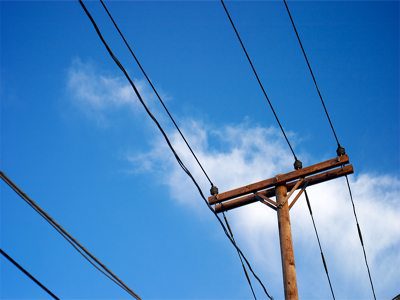 As pressure mounts for Australia’s states and territories to finalise their position on the National Energy Guarantee, a new report has warned the federal government’s policy would fail to achieve its most basic and important function: to lower energy costs for consumers.
As pressure mounts for Australia’s states and territories to finalise their position on the National Energy Guarantee, a new report has warned the federal government’s policy would fail to achieve its most basic and important function: to lower energy costs for consumers.
The report, commissioned by Greenpeace Australia Pacific, says the Coalition’s NEG would in fact do the opposite – raise electricity prices; as well as bringing investment in large-scale renewables to a halt, and do nothing to combat climate change.
Based on analysis conducted by energy and environment analysts RepuTex, the report models the impact of the NEG under the government’s 26 per cent emissions reduction target, compared to a more ambitious 45 percent target.
In both scenarios, as shown in Figure 17 above, electricity prices are forecast to fall through to 2020 as more than 6GW of renewable energy enters the NEM under large-scale renewable energy target (LRET).
“The increase in low cost solar and wind generation will see the electricity supply steadily become more competitive, with average prices less influenced by high priced gas, and subsequently falling toward $60 MWh in 2020,” the report says.
But under the NEG, new investment in renewables falls off a cliff after 2020, while the impact of the reliability guarantee drives an increase in gas generation, prolongs the phase-out of coal, and makes it harder for key new technologies, like battery storage and demand management to compete.
“The result is the continuation of a coal-dominated market with a fairly static picture for large-scale renewables investment, with gas providing flexibility to meet evening ramp ups,” the report says.
“As a result wholesale prices rise above $70 per MWh after the closure of Liddell, and $80 per MWh after the expected retirement of Yallourn in 2028.”
A more ambitious emissions reduction target, however, of 45 per cent, would provide a signal for investment in more solar and wind, driving prices down by around $20/MWh,
“The competitive pressure from higher solar and wind energy is modelled to push wholesale prices lower, eventually resulting in the closure of excess coal capacity” – around 9GW, in total, by 2030 RepuTex says.
“As intermittent renewable investment occurs, this low cost generation also displaces some dispatch of gas generation during the day, and increases the opportunity for energy storage of excess renewable energy.
“As a result wholesale electricity prices oscillate around $60 per MWh through to 2030, rather than rise above $80 per MWh as seen under the low investment scenario under a 26 per cent NEG.”
The findings come just weeks ahead of the August 10 “deadline,” the date of the next COAG Energy Council meeting, when the states and territories expected to come to a decision on whether or not they will sign up to the federal government policy.
All states and territories in the National Electricity Market (NEM) have to agree to adopt the NEG before it can become law. Ahead of the August meeting, energy ministers are expected to receive an updated version of the policy.
But support is not guaranteed, particularly from those Labor states with high renewable energy targets, including Queensland, Victoria.
And the ACT has all but pledged not to sign up to the NEG as the policy currently stands – for all of the same reasons outlined in the RepuTex report.
“The ACT has been very clear that we cannot sign up to the deal in its current form,” territory energy minister Shane Rattenbury said, again, on Tuesday.
“The 26-28 per cent emissions reduction target is clearly not ambitious enough, and will make the task (of decarbonisation of the economy) more costly, more difficult and certainly more politically difficult than cutting from electricity sector.
“We are also skeptical about the NEG bringing down electricity bills,” he added. “And if other sectors are going to have to do heavy lifting (on emissions reduction), then it will lift costs in other key areas, like food and transport.”
“We are, I should add, also very concerned that (federal energy minister) Josh Frydenberg is trying to lock in an answer from the states by August 10, and then has to go back to the party room.
“We would like to have some assurance that there will be no deals made (for the subsidisation of new coal) after the fact,” he said.
On the mix of energy generation that would evolve under the NEG, as compared to under a 45 per cent emissions reduction scenario, RepuTex confirms concerns that the former – basically business as usual – would wind back investment in renewables and battery storage, stifle competition, and favour higher emissions sources.
“We estimate 42 per cent of generation will be derived from renewable energy sources in 2030 (Figure 7), derived from current national policy, more than the 32-36 per cent modelled by the ESB,” the report says.
“Given this pipeline, a 26 per cent NEG is modelled to have no impact in driving any new renewables investment beyond this level.”
Under the 45 per cent scenario, however, demand for more clean energy and falling solar costs drives the addition of almost 14GW of large-scale PV by 2030, in addition to the 12 GW of small-scale PV, the report says.
Wind energy also makes a major contribution, with 9GW of wind capacity added by 2030, 2GW of which is expecetd to come from offshore developments.
Meanwhile, almost all of forecast growth in electricity demand is expected to be met by increasing rooftop solar uptake, while retiring coal plants are replaced by a combination of dispatchable gas, solar and wind, demand response and other flexible
storage liked battery and pumped hydro.
“The evidence is clear: more renewables make power cheaper and cleaner,” said Greenpeace Australia Pacific Head of Research and Investigations, Nikola Casule, in comments on Friday.
“This research by Reputex exposes Malcolm Turnbull’s 26 percent target as grossly inadequate, failing both on power prices and on carbon emissions.
But Casule said the pressure was now on the state premiers to ensure Turnbull’s lack of backbone on climate and energy was not enshrined in the law.
“If the Victorian and Queensland Premiers vote for the NEG, they will own the consequences of hobbling the renewables revolution as much as Malcolm Turnbull and Tony Abbott already do.
“It will become Daniel Andrews’ and Annastacia Palaszczuk’s NEG – the higher power bills, environmental damage, and carbon pollution that will result will be theirs.”








